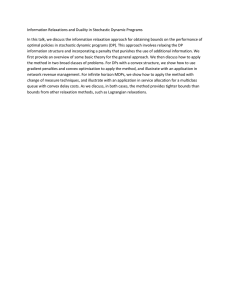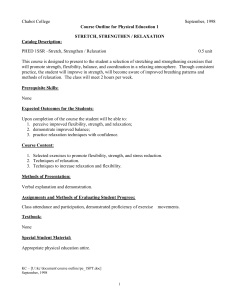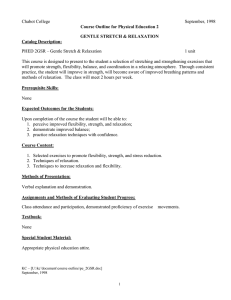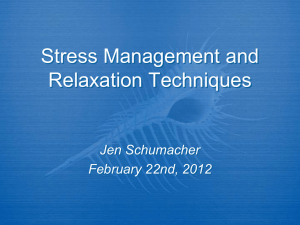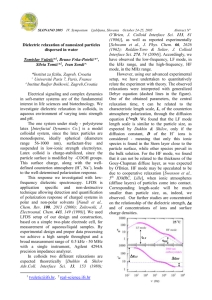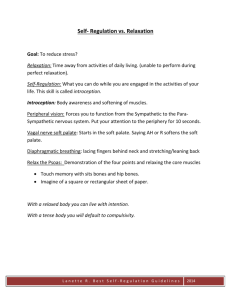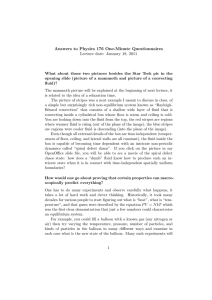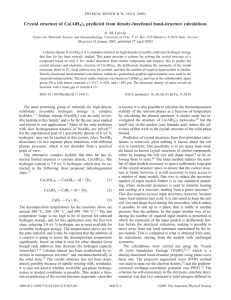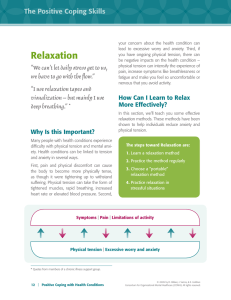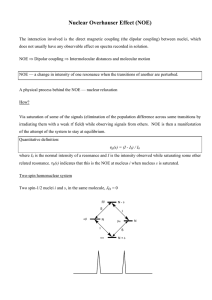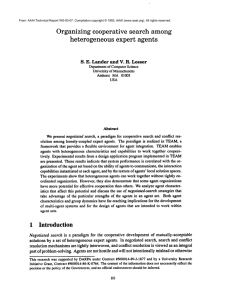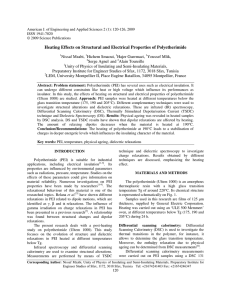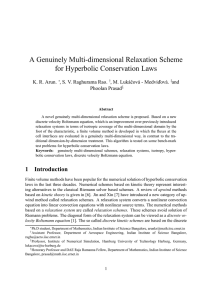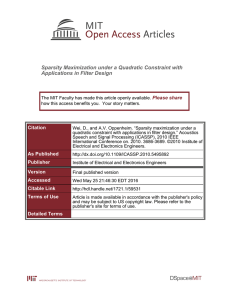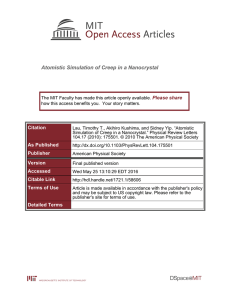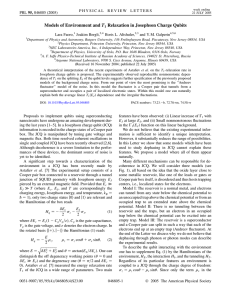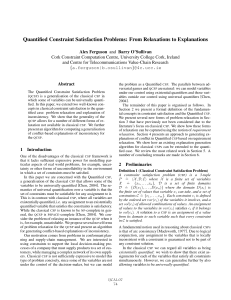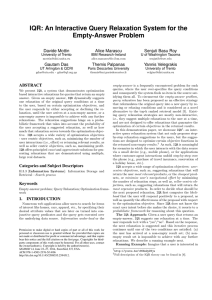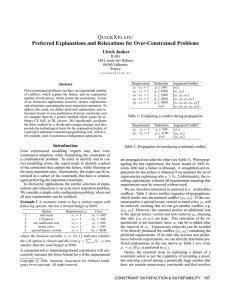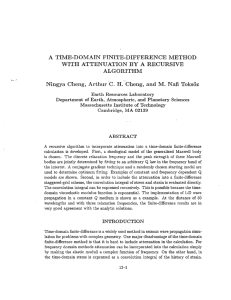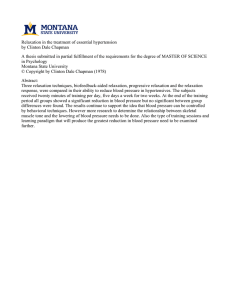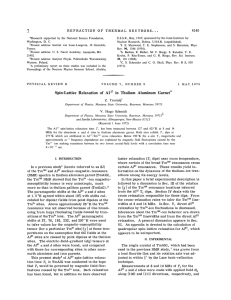MICROWAVE SPECTROSCOPY II. J. G. Ingersoll
advertisement
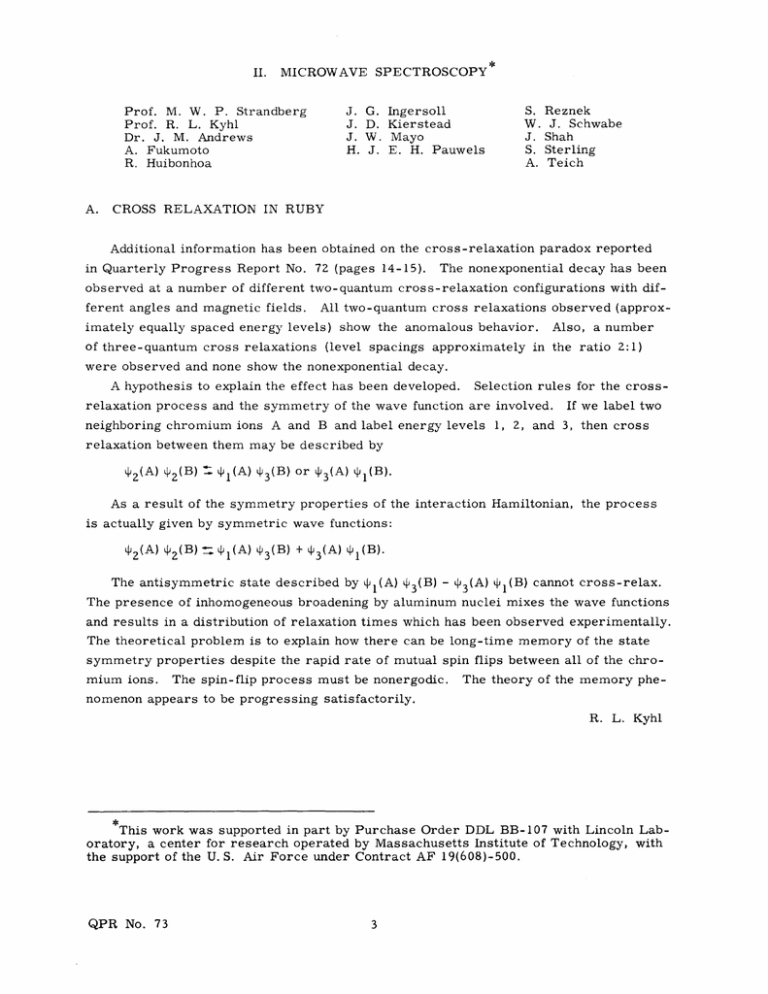
II. MICROWAVE SPECTROSCOPY Prof. M. W. P. Strandberg Prof. R. L. Kyhl Dr. J. M. Andrews A. Fukumoto R. Huibonhoa A. J. J. J. H. G. Ingersoll D. Kierstead W. Mayo J. E. H. Pauwels S. W. J. S. A. Reznek J. Schwabe Shah Sterling Teich CROSS RELAXATION IN RUBY Additional information has been obtained on the cross-relaxation paradox reported in Quarterly Progress Report No. 72 (pages 14-15). The nonexponential decay has been observed at a number of different two-quantum cross-relaxation configurations with different angles and magnetic fields. All two-quantum cross relaxations observed (approx- imately equally spaced energy levels) show the anomalous behavior. of three-quantum cross relaxations Also, a number (level spacings approximately in the ratio 2:1) were observed and none show the nonexponential decay. A hypothesis to explain the effect has been developed. Selection rules for the cross- relaxation process and the symmetry of the wave function are involved. neighboring chromium ions A and B and label energy levels 1, 2, If we label two and 3, then cross relaxation between them may be described by 2 (A) 2 (B) 1 (A) t 3 (B) or L 3 (A) 1 (B). As a result of the symmetry properties of the interaction Hamiltonian, the process is actually given by symmetric wave functions: 2 (A) i 2 (B) - 1 (A) 3 (B) + L 3 (A) I(B). 1 The antisymmetric state described by 1 (A) y 3 (B) - 4 3 (A) i 1 (B) cannot cross-relax. The presence of inhomogeneous broadening by aluminum nuclei mixes the wave functions and results in a distribution of relaxation times which has been observed experimentally. The theoretical problem is to explain how there can be long-time memory of the state symmetry properties despite the rapid rate of mutual spin flips between all of the chromium ions. The spin-flip process must be nonergodic. The theory of the memory phe- nomenon appears to be progressing satisfactorily. R. L. Kyhl This work was supported in part by Purchase Order DDL BB-107 with Lincoln Laboratory, a center for research operated by Massachusetts Institute of Technology, with the support of the U. S. Air Force under Contract AF 19(608)-500. QPR No. 73
